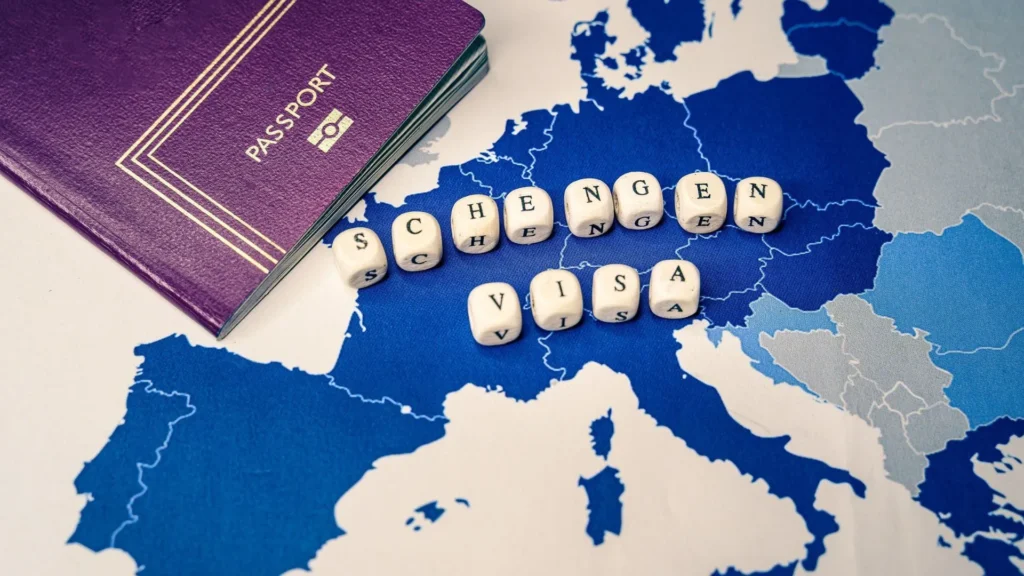
When it comes to obtaining clear and accurate details, always reach out to the embassy or consulate of your primary destination for more specifics. Here’s a streamlined guide to understanding the Schengen visa process:
What is a Schengen Visa?
A Schengen visa allows non-EU nationals to enter the Schengen area for short, temporary visits of up to 90 days within a 180-day period.
Types of Schengen Visas:
- Single-entry visa: Grants entry into the Schengen area one time.
- Multiple-entry visa: Permits multiple visits as long as the visa remains valid.
- Airport transit visa: Enables transit through the international zones of Schengen airports during a stopover but does not allow exiting the transit area.
Duration of Stay
To calculate your remaining days in a Schengen country, use the short-stay visa calculator. Detailed instructions and examples are available in the user’s guide.
Who Needs a Schengen Visa?
Certain non-EU nationals must apply for a short-stay visa before traveling to the Schengen area.
- Check the EU’s list of countries requiring a visa for entry.
- Exemptions may apply to specific groups, such as diplomats, refugees, military personnel, or students on organized school trips.
Airport Transit Visas
Some non-EU citizens must also hold an airport transit visa when connecting through Schengen airports.
- Additional countries have stricter transit rules requiring this visa.
- Certain individuals, outlined in Article 3(5) of the Visa Code, are exempt.
Where to Apply
Your visa application must be submitted to the consulate of the country you plan to visit.
- Single destination: Apply to the consulate of that country.
- Multiple destinations: Apply to the consulate of the country where you’ll spend the most time.
- Equal stays: Submit to the consulate of your first entry point.
When to Apply
- Submit your application at least 15 days before your trip but no earlier than 6 months prior.
- Some consulates require booking an appointment in advance.
Documents Required
To apply for a Schengen visa, prepare the following:
- Passport: Must be valid for at least three months after departure from the Schengen area.
- Visa application form.
- Photo: Must meet ICAO standards.
- Medical insurance: Coverage for emergency medical care, hospitalization, and repatriation.
- Supporting documents: Proof of trip purpose, financial stability, accommodation, and intent to return to your home country.
- Biometric data: Fingerprints are required (exemptions exist for certain applicants).
- Additional documents may be requested depending on the consulate.
Visa Fees
- €90 for adults
- €45 for children aged 6–12
- €35 for applicants from Armenia, Azerbaijan, and Belarus
- €67.50 for applicants from Cabo Verde
Fees may be waived for specific categories of travelers. Service center fees might apply when submitting through third-party agencies.
Processing Time
- Standard processing time: 15 days.
- Complex cases: Up to 45 days.
Family members of EU/EEA citizens under the Free Movement Directive may qualify for faster and free processing.
If Your Visa is Refused
In the event of a rejection, you’ll receive:
- The reason for refusal.
- Instructions for filing an appeal.
Frequently Asked Questions (FAQ) about Schengen Visa
1. What is a Schengen Visa?
A Schengen visa is a permit that allows non-EU nationals to travel to countries in the Schengen area for short stays of up to 90 days within a 180-day period.
2. What types of Schengen visas are available?
- Single-entry visa: Allows entry to the Schengen area once.
- Multiple-entry visa: Permits multiple visits as long as the visa remains valid.
- Airport transit visa: Enables transit through the international transit area of Schengen airports during stopovers or flight changes but doesn’t allow exit from the airport.
3. How can I calculate my remaining days in the Schengen area?
You can use the short-stay visa calculator provided by the EU. It offers step-by-step instructions to help you calculate your remaining allowed days.
4. Who needs to apply for a Schengen visa?
Citizens of specific non-EU countries are required to hold a Schengen visa to enter the area. Refer to the EU’s list of countries with visa requirements.
Certain exemptions apply for groups like diplomats, students on school trips, and military personnel.
5. Do I need an airport transit visa?
Some non-EU nationals need an airport transit visa when connecting through Schengen airports. Exemptions are available for specific categories of travelers as defined in Article 3(5) of the Visa Code.
6. Where should I submit my Schengen visa application?
- For a single destination: Apply at the consulate of that country.
- For multiple destinations: Apply at the consulate of the country where you’ll spend the most time.
- For equal-duration visits: Submit your application to the consulate of your first entry point.
7. When should I apply for a Schengen visa?
Submit your application at least 15 days before your trip but no earlier than 6 months before your travel date. Some consulates may require scheduling an appointment.
8. What documents are required for a Schengen visa?
- A valid passport (valid for at least three months after departure).
- A completed visa application form.
- A photo that meets ICAO standards.
- Medical insurance covering emergencies, hospitalization, and repatriation.
- Supporting documents, including proof of purpose, financial means, and accommodation.
- Biometric data (fingerprints), with exemptions for certain categories.
Additional documents may be requested by the consulate.
9. How much does a Schengen visa cost?
- €90 for adults.
- €45 for children aged 6–12.
- €35 for applicants from Armenia, Azerbaijan, and Belarus.
- €67.50 for applicants from Cabo Verde.
Fees may be waived for certain categories, and additional charges may apply when applying via visa service centers.
10. How long does it take to process a Schengen visa?
- Standard processing time is 15 days.
- For more complex cases, processing can take up to 45 days.
Family members of EU/EEA citizens under the Free Movement Directive may qualify for an expedited and cost-free process.
11. What happens if my Schengen visa application is denied?
If your application is rejected, you will be provided with:
- The reason for rejection.
- Details on how to appeal the decision.
12. How can Next Move Consultant help with my Schengen visa application?
Next Move Consultant offers expert guidance throughout the visa application process, including document preparation, understanding eligibility, and navigating application requirements. Contact us for personalized assistance.
